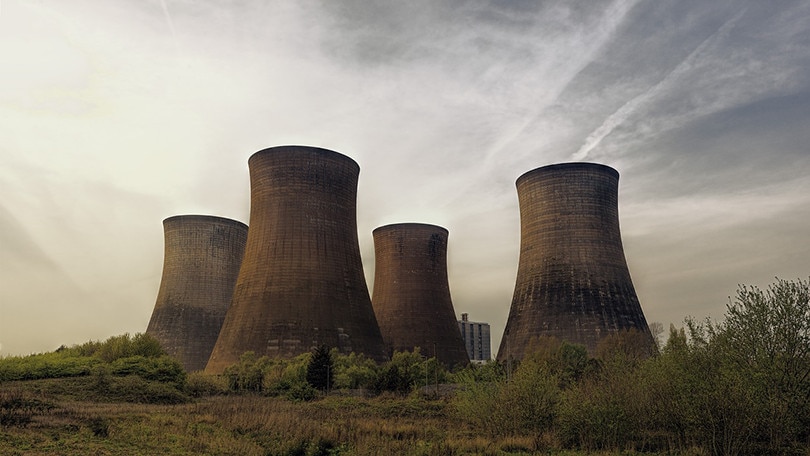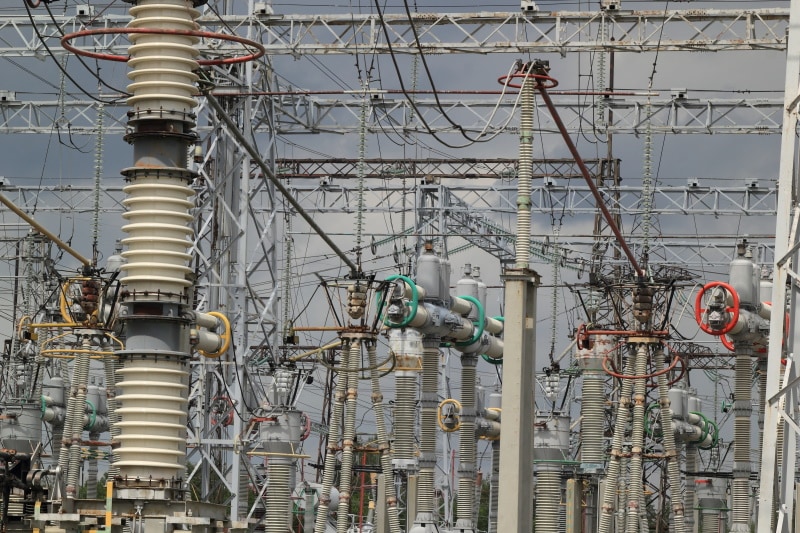Is Nuclear Energy Efficient? What You Should Know
-
Jana Blagojevic
- Last updated:

Nuclear energy is the energy released through nuclear fission or fusion, most commonly used for generating electricity in controlled environments of power plants. The entire world uses nuclear energy as a source of electricity, among other sources. While there is a lot of debate and skepticism associated with nuclear energy, it is one of the most efficient energy sources. Some studies have shown that it is two times more reliable than coal or gas and around three times more efficient than solar and wind energies.
You can learn more about nuclear energy and what makes it so efficient in the article below.
What is Nuclear Energy?
Creating nuclear energy begins with a single uranium atom. The energy derives from the very core of the atom through a process called splitting atoms. The uranium atom is split when hit by a neutron, releasing energy in the form of heat and radiation. These collisions release other neutrons, hitting more uranium atoms and creating a nuclear chain reaction.
This reaction is monitored in a controlled environment in nuclear power plants, creating heat and steam that generates large amounts of energy in the form of electricity. The electricity generated can supply entire towns with electrical power in their homes.
Advantages of Nuclear Energy
Reliable Energy Source
Unlike other energy sources like solar power or wind power, nuclear power plants have no limitations and don’t depend on external conditions such as the weather. The great thing about nuclear power plants is that they aren’t affected by outside factors. They manage a reliable and predictable energy output. Nuclear energy is also more reliable because uranium is predicted to last for at least another 70 to 80 years, much longer than other non-renewable energy sources.
Low Output of Pollution

While there are some disadvantages to using nuclear energy and its environmental impact, it is essential to note that this type of energy source reduces the emissions of greenhouse gases. It has a much lower overall output of pollution compared to fossil fuels.
Cheap Electricity Source
Nuclear energy is the most cost-effective solution, with energy sources like gas, oil, and coil being extremely expensive. After the initial investment in building a nuclear power plant, the costs of producing nuclear energy are significantly lower than the costs of producing other energy sources. Unlike standard fossil fuels, nuclear energy has low risks of inflation or varying prices.
Improvements and Innovations in Technology

With global warming, society is actively searching for an adequate solution and alternative to traditional energy sources. With the rise of technology and many innovations in that field, nuclear energy has become much cheaper, safer, and more efficient. Nuclear energy may be the best solution for reducing pollution in the upcoming years, especially if the method continues advancing.
Disadvantages of Nuclear Energy
Risk of Accidents
Although the risks of accidents occurring in a nuclear power plant are extremely low, most people in the US feel skeptical and unsafe having such a facility in their surroundings. Their doubts are justified—in a case of an accident, the damage would be catastrophic to society and the environment. While that’s the case, today’s nuclear power plants have inspectors working on-site, ensuring all safety regulations and measures are followed strictly.
Limited Resources
Nuclear energy is one of the non-renewable sources. Uranium is not an endless source; scientists predict it will run out in the next 70 years. Unlike other sources that run on wind and sun, uranium must be mined.
Nuclear and Radioactive Waste

As we’ve mentioned above, nuclear power plants make zero emissions of greenhouse gasses and don’t contribute to pollution. However, nuclear power plants produce tons of nuclear waste, which has to be dealt with carefully while following specific regulations. Since destroying nuclear waste is impossible, power plants have a process for dealing with it. The nuclear waste is securely sealed in containers and stored deep underground.
What is Nuclear Energy Efficiency?
Since nuclear power plants work similarly to heat engines, their efficiency is measured in the same way. Each heat engine, even one as large as a nuclear power plant, has ways of measuring thermal power. Determining the thermal power of the nuclear plant shows how much heat it can produce and how efficient nuclear energy is. The thermal efficiency of one nuclear power plant can be measured when considering the amount of energy used to produce electricity.
Older nuclear power plants achieved efficiencies of around 33%, although facility innovations and improvements in technology can increase the total energy output of one nuclear power plant.
How Efficient is Nuclear Energy?

The capacity factor of an individual power plant is essentially its productivity during a specified period. It is the amount of electricity generated over a particular time divided by the theoretical maximum amount of electricity a power plant can generate. Since the overall performance of the operating plants in the world is rising, it reached 82.4% in 2022. In 2020, nuclear power plants were almost two times more efficient than natural gas and coal plants and three times more efficient than wind turbines or solar plants. These plants have the highest capacity of any other energy source.
Final Thoughts
There are many misconceptions about nuclear energy and how exactly it functions. While most people believe it to be incredibly harmful to the environment, it is one of the most efficient and reliable energy sources. Nuclear power plants have zero green gas emissions, and while they produce nuclear waste, they are much less harmful to ecology than burning fossil fuels. After reading about nuclear energy and how it contributes to powering our homes, you will hopefully understand how efficient and reliable they are instead of being as scary as people may believe.
- World Nuclear Performance Report 2022.
- Pros and Cons of Nuclear Energy: Safety, Cost, & Efficiency
- The Pros & Cons of Nuclear Energy: Is it safe? – Spring Power & Gas
- Nuclear Power is the Most Reliable Energy Source, and It’s Not Even Close.
- Nuclear power plant – Energy Education
- Thermal power – Energy Education
- Nuclear Power Efficiency | Energy Services Group International
Featured Image Credit; Piqsels
Contents
